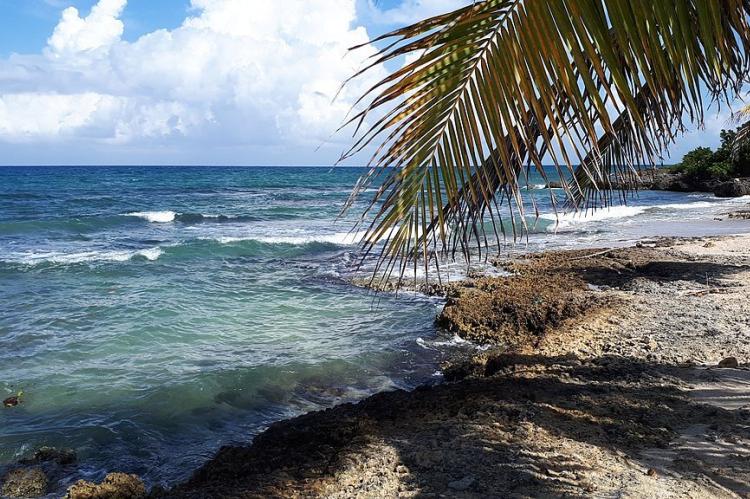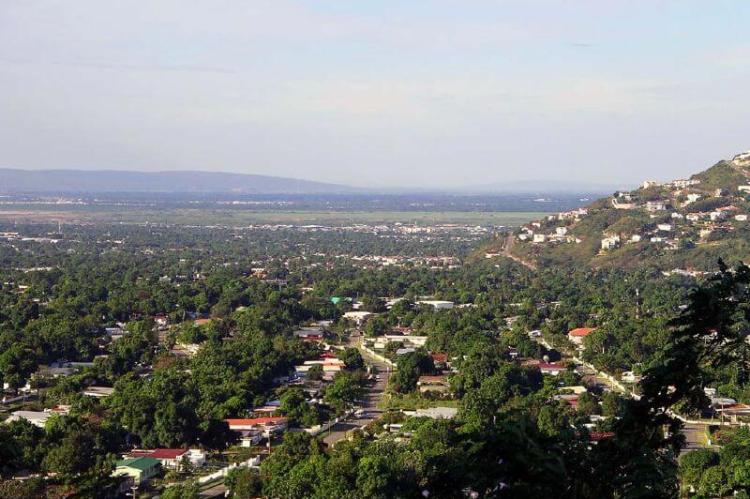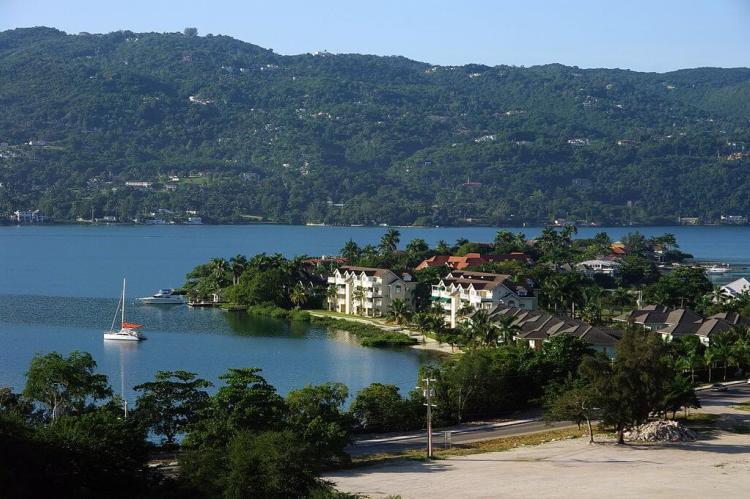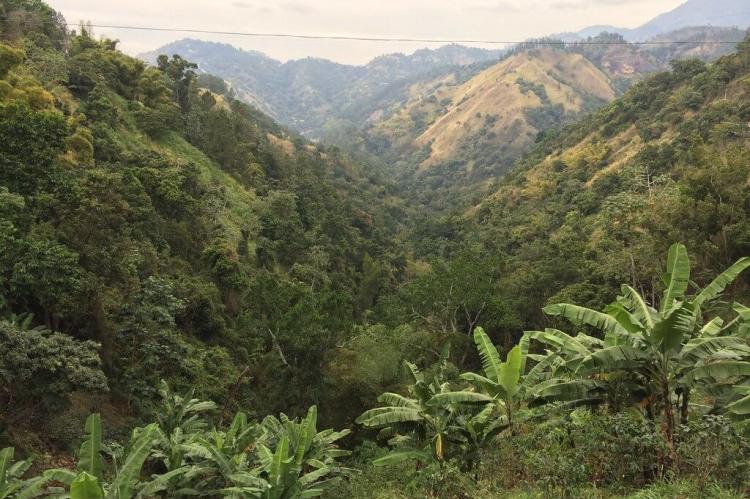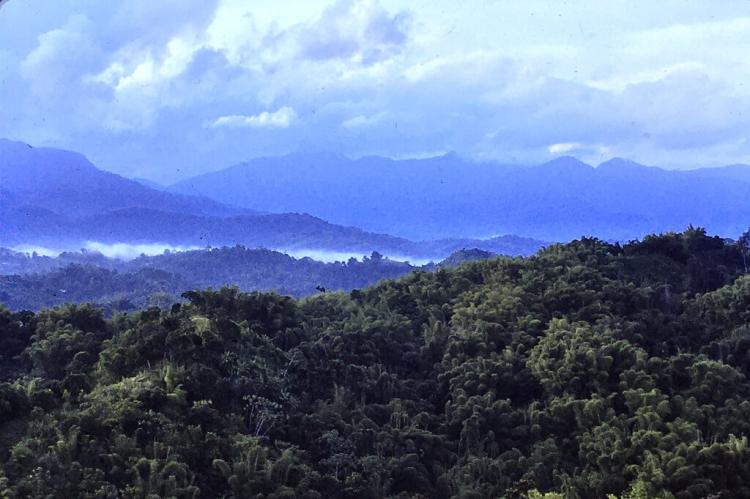Jamaica: Where History Meets Paradise
Jamaica, an island nation in the Greater Antilles, captivates with its rich cultural tapestry, complex history, and stunning natural landscapes. From its indigenous roots to its colonial past and vibrant present, Jamaica has emerged as a unique blend of African, European, and native influences.
Roots and Rhythms: Exploring Jamaica's Impact on the World
Jamaica, an island nation in the Greater Antilles archipelago of the Caribbean Sea, captivates visitors and scholars with its rich cultural tapestry, complex history, and stunning natural landscapes. From its indigenous roots to its colonial past and vibrant present, Jamaica has emerged as a unique blend of African, European, and native influences. This exploration delves into Jamaica's multifaceted aspects, examining its geography, history, culture, economy, and global impact.
Geography and Climate
Jamaica, the third-largest island in the Greater Antilles archipelago of the Caribbean Sea, is strategically located south of Cuba and west of Hispaniola (the island shared by Haiti and the Dominican Republic). Situated approximately 145 kilometers (90 miles) south of Cuba and 190 kilometers (118 miles) west of Haiti, Jamaica's position in the heart of the Caribbean has played a crucial role in its history and development.
The island spans approximately 10,990 square kilometers (4,240 square miles) and features a diverse landscape of rugged mountains, lush rainforests, and pristine beaches. The Blue Mountains, reaching over 2,250 meters (7,380 feet), dominate the eastern region and provide a striking backdrop to the island's topography. These mountains contribute to Jamaica's scenic beauty and play a crucial role in its climate and agriculture, particularly in cultivating the world-renowned Blue Mountain coffee.
Jamaica's tropical climate supports a wide array of ecosystems. The island experiences two rainy seasons, typically from May to June and September to November. This climate fosters diverse habitats, including mangrove swamps, coral reefs, and inland forests, each hosting unique flora and fauna. White sandy beaches and crystal-clear waters characterize the coastal areas, while the interior boasts verdant valleys and cascading waterfalls.
Key destinations that showcase Jamaica's geographical diversity include:
Negril: Known for its famous Seven Mile Beach and dramatic cliff sides.
Montego Bay: Home to pristine beaches and the protected waters of Montego Bay Marine Park.
Ocho Rios: Features the iconic Dunn's River Falls and lush tropical gardens.
Port Antonio: Offers river rafting access to the Blue Lagoon and the Rio Grande.
Kingston: The capital city is near the Blue Mountains and is home to cultural attractions.
Cockpit Country: A rugged karst landscape with unique cave systems and biodiversity.
YS Falls: A series of cascading waterfalls surrounded by lush vegetation in St. Elizabeth parish.
This varied landscape contributes to Jamaica's appeal as a tourist destination and supports its rich biodiversity. The island is rich in natural resources, including bauxite, limestone, and gypsum. Its fertile soil supports agriculture, while its coastal waters teem with marine life, contributing to the economy and biodiversity. The presence of bauxite, in particular, has been significant for Jamaica's industrial development, making it one of the world's leading producers of this aluminum ore.
The island's natural harbors, such as Kingston Harbour, have played a crucial role in its historical development as a critical port in the Caribbean.
Historical Journey
Before European contact, Jamaica was inhabited by the Taíno people, an Arawak-speaking indigenous group. They called the island "Xaymaca," meaning "land of wood and water," from which the name Jamaica is derived. The Taíno developed a sophisticated society with a rich culture, advanced agricultural techniques and a complex religious system. However, their population was drastically reduced following European arrival.
Christopher Columbus arrived in Jamaica in 1494, initiating Spanish colonization. The Spanish occupation lasted until 1655, during which time the indigenous population was decimated by disease and forced labor. The Spanish established encomiendas and introduced sugar cultivation, later becoming a cornerstone of the island's economy. They also brought the first enslaved Africans to Jamaica, laying the foundation for the island's African cultural heritage.
In 1655, the British seized Jamaica from the Spanish. The island became a major sugar producer, relying heavily on enslaved African labor. This period profoundly shaped Jamaica's demographics, culture, and social structure. The plantation system dominated the economy and society, creating deep social and racial divisions that would persist long after slavery's abolition. The brutality of the slave system led to numerous rebellions, including the famous Maroon Wars, which saw escaped enslaved people establishing independent communities in the island's mountainous interior.
Jamaica gained independence from Britain on August 6, 1962, after a period of increasing self-governance. The transition marked the beginning of Jamaica's journey as a sovereign nation, facing both opportunities and challenges in the post-colonial era. The country's first prime minister, Alexander Bustamante, led Jamaica into a new era of self-rule, grappling with the legacies of colonialism while forging a distinct national identity.
Cultural Mosaic
While English is the official language, Jamaican Patois, a Creole language, is widely spoken. Patois reflects the island's diverse linguistic heritage, blending English with West African languages and other influences. This unique language is integral to Jamaican identity and is used in everyday conversation, literature, and music. Its expressive nature and rhythmic qualities have contributed significantly to Jamaica's cultural exports, particularly in music and poetry.
Jamaica's religious landscape is diverse, with Christianity being the predominant faith. However, other religions and spiritual practices, including Rastafarianism, have significant followings and cultural impact. Rastafarianism emerged in the 1930s and has become particularly associated with Jamaica internationally, influencing music, art, and philosophy beyond the island's shores. The syncretic nature of Jamaican spirituality, blending African, European, and indigenous beliefs, is evident in practices like Obeah and Revival, which continue to play a role in Jamaican folk culture.
Jamaica's global cultural influence is perhaps most evident in its music. Genres like reggae, ska, and dancehall have gained worldwide popularity. Bob Marley, an iconic figure in reggae music, helped introduce Jamaican culture to a global audience. The island's music has been a powerful vehicle for social commentary, addressing poverty, inequality, and political struggle. Beyond reggae, Jamaica has produced influential artists in various genres, from jazz to hip-hop, continually reinventing its musical traditions.
Jamaican cuisine is a flavorful fusion of various culinary traditions. Dishes like jerk chicken, ackee and saltfish, and curry goat showcase the island's unique blend of African, Indian, and European influences. Using local ingredients, such as scotch bonnet peppers, allspice (pimento), and coconut, gives Jamaican food its distinctive taste. The island's culinary traditions extend to its drinks, with rum production being an important industry and a cultural touchstone.
Economic Landscape
Tourism is a cornerstone of Jamaica's economy, attracting millions of visitors annually. The industry capitalizes on the island's natural beauty, cultural attractions, and renowned hospitality. Beach resorts, particularly in areas like Montego Bay and Negril, draw tourists worldwide. However, there's a growing emphasis on eco-tourism and cultural tourism to showcase Jamaica's natural wonders and rich heritage beyond the traditional sun-and-sand offerings.
Agriculture remains significant, with crops like sugar, bananas, and coffee being important exports. The cultivation and export of cannabis, particularly for medicinal purposes, is an emerging sector. Jamaica's Blue Mountain coffee, grown in the island's eastern mountains, is particularly prized in international markets. While no longer dominant, the agricultural sector is crucial in rural employment and food security.
Jamaica faces economic challenges, including high public debt and unemployment. However, opportunities in technology, renewable energy, and creative industries offer potential for diversification and growth. The government has been working to improve the business environment, attract foreign investment, and develop new economic sectors. Expanding logistics and business process outsourcing industries represents part of this effort to broaden Jamaica's economic base.
Political Structure
Jamaica operates as a parliamentary democracy within the Commonwealth realm. The country's political system is based on the Westminster model, with a prime minister as head of government and the British monarch as titular head of state. The bicameral parliament consists of the House of Representatives and the Senate. Since independence, Jamaica's political landscape has been dominated by two major parties: the Jamaica Labour Party (JLP) and the People's National Party (PNP).
Jamaica actively participates in Caribbean regional organizations and maintains strong ties with countries like the United States, Canada, and the United Kingdom. The nation also engages in South-South cooperation and participates in various international forums. Jamaica has been a vocal advocate for issues affecting small island developing states, particularly climate change and sustainable development.
Social Issues and Development
Jamaica has made significant strides in education, with high literacy rates. However, challenges persist in areas such as access to higher education and matching educational outcomes with job market demands. The country has a strong tradition of tertiary education, with institutions like the University of the West Indies playing a crucial role in regional development. Efforts are ongoing to strengthen vocational training and improve the quality of primary and secondary education.
The country's healthcare system faces challenges in infrastructure and resource allocation. Efforts are ongoing to improve healthcare access and address issues like non-communicable diseases. Jamaica has made progress in areas such as maternal and child health but continues to grapple with issues like HIV/AIDS and the impacts of lifestyle diseases. The brain drain of healthcare professionals to more developed countries remains a significant challenge.
Jamaica grapples with high crime rates, particularly in urban areas. Addressing this issue remains a key priority for social development and economic growth. The government has implemented various strategies to combat crime, including community policing initiatives and social intervention programs. However, the roots of crime in poverty, inequality, and lack of opportunity require long-term, multifaceted solutions.
Environmental Concerns
As an island nation, Jamaica is vulnerable to climate change effects, including sea-level rise, increased hurricane intensity, and threats to biodiversity. The country's coastal areas, crucial for tourism and local livelihoods, are particularly at risk. Climate change also poses challenges for agriculture, potentially affecting key crops and food security.
Conservation initiatives focus on protecting Jamaica's unique ecosystems, including efforts to preserve coral reefs, manage forests, and promote sustainable tourism practices. The country has established several protected areas, including marine parks and forest reserves. There's growing awareness of the need to balance economic development with environmental protection, leading to initiatives in sustainable agriculture, renewable energy, and eco-tourism.
Jamaica on the World Stage
Jamaica has gained international recognition for its athletic prowess, particularly in track and field. Athletes like Usain Bolt have brought global attention to the country's sporting talent. The island's athletic success is often attributed to genetic factors, cultural emphasis on sports, and a robust school-based athletics program. Beyond track and field, Jamaican athletes have also made marks in sports like cricket, football, and bobsledding.
Jamaican music, art, and literature continue to influence global popular culture. The island's impact extends beyond its shores, shaping fashion, language, and lifestyle trends. Jamaican authors like Marlon James have achieved international acclaim while the island's visual arts scene continues evolving, blending traditional motifs with contemporary styles. The global spread of Jamaican popular culture has significantly shaped perceptions of the Caribbean and influenced youth cultures worldwide.
Despite its small size, Jamaica actively participates in international diplomacy, advocating for issues relevant to small island developing states and contributing to global discussions on sustainable development. The country has played important roles in international bodies such as the United Nations and the Commonwealth of Nations. Jamaica's diplomatic efforts often focus on climate change, debt relief for developing countries, and South-South cooperation.
Conclusion
Jamaica's journey from a colonial outpost to a vibrant, independent nation is a testament to its resilience and cultural richness. While facing challenges familiar to developing countries, Jamaica continues to make significant contributions to global culture, sports, and diplomacy. Its unique blend of history, natural beauty, and cultural dynamism ensures that Jamaica remains fascinating and studied for years. As the island nation moves forward, it continues to navigate the complexities of development, striving to build on its strengths while addressing persistent social and economic challenges. Jamaica's story is one of struggle and triumph, of a small island making an outsized impact on the world stage and of a people whose creativity and resilience continue to shape their nation's future.
